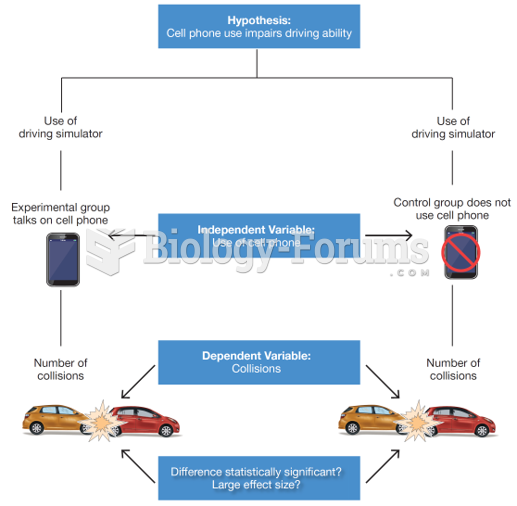|
|
|
The average person is easily confused by the terms pharmaceutics and pharmacology, thinking they are one and the same. Whereas pharmaceutics is the science of preparing and dispensing drugs (otherwise known as the science of pharmacy), pharmacology is the study of medications.
Malaria mortality rates are falling. Increased malaria prevention and control measures have greatly improved these rates. Since 2000, malaria mortality rates have fallen globally by 60% among all age groups, and by 65% among children under age 5.
Illicit drug use costs the United States approximately $181 billion every year.
Drugs are in development that may cure asthma and hay fever once and for all. They target leukotrienes, which are known to cause tightening of the air passages in the lungs and increase mucus productions in nasal passages.
Patients who have undergone chemotherapy for the treatment of cancer often complain of a lack of mental focus; memory loss; and a general diminution in abilities such as multitasking, attention span, and general mental agility.
 The “Flat Head” (Chinook) Indians acquired their name through shaping in infancy, as shown in a diag
The “Flat Head” (Chinook) Indians acquired their name through shaping in infancy, as shown in a diag
 Deviancy training is a process by which antisocial peers encourage antisocial talk among friends, ...
Deviancy training is a process by which antisocial peers encourage antisocial talk among friends, ...





